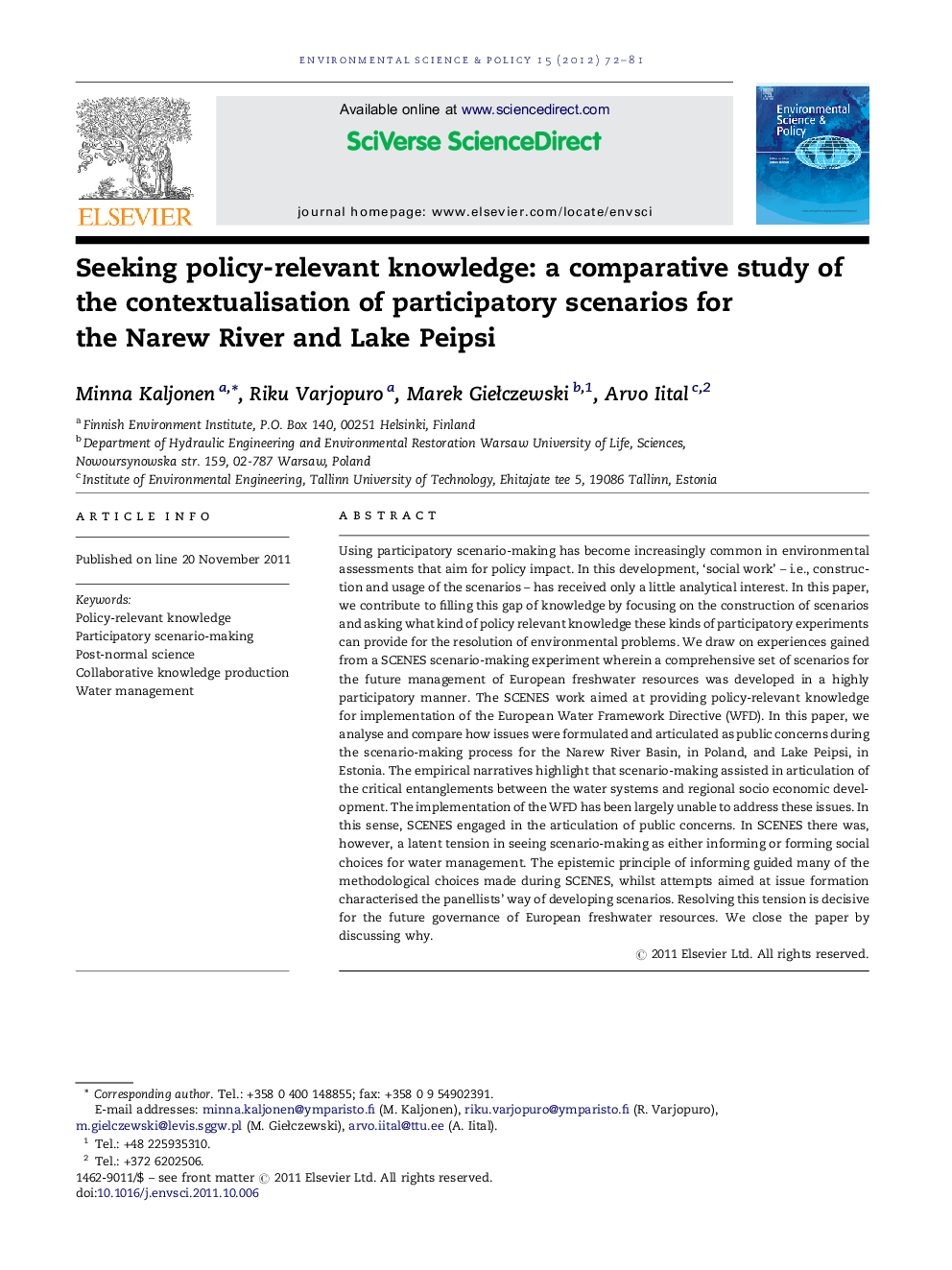| Article ID | Journal | Published Year | Pages | File Type |
|---|---|---|---|---|
| 1053861 | Environmental Science & Policy | 2012 | 10 Pages |
Using participatory scenario-making has become increasingly common in environmental assessments that aim for policy impact. In this development, ‘social work’ – i.e., construction and usage of the scenarios – has received only a little analytical interest. In this paper, we contribute to filling this gap of knowledge by focusing on the construction of scenarios and asking what kind of policy relevant knowledge these kinds of participatory experiments can provide for the resolution of environmental problems. We draw on experiences gained from a SCENES scenario-making experiment wherein a comprehensive set of scenarios for the future management of European freshwater resources was developed in a highly participatory manner. The SCENES work aimed at providing policy-relevant knowledge for implementation of the European Water Framework Directive (WFD). In this paper, we analyse and compare how issues were formulated and articulated as public concerns during the scenario-making process for the Narew River Basin, in Poland, and Lake Peipsi, in Estonia. The empirical narratives highlight that scenario-making assisted in articulation of the critical entanglements between the water systems and regional socio economic development. The implementation of the WFD has been largely unable to address these issues. In this sense, SCENES engaged in the articulation of public concerns. In SCENES there was, however, a latent tension in seeing scenario-making as either informing or forming social choices for water management. The epistemic principle of informing guided many of the methodological choices made during SCENES, whilst attempts aimed at issue formation characterised the panellists’ way of developing scenarios. Resolving this tension is decisive for the future governance of European freshwater resources. We close the paper by discussing why.
► We compare two participatory scenario-making processes in the field of water management. ► We ask what kind of policy-relevant knowledge these kinds of experiments could provide for the use and management of water resources. ► We conclude that, at its best, they can assist in the articulation of issues of public concern that the responsible institutions are unable to address. ► Such a take on policy-relevant knowledge requires reorientation from scenario-making methodologies.
